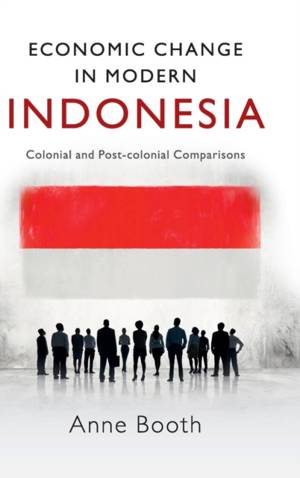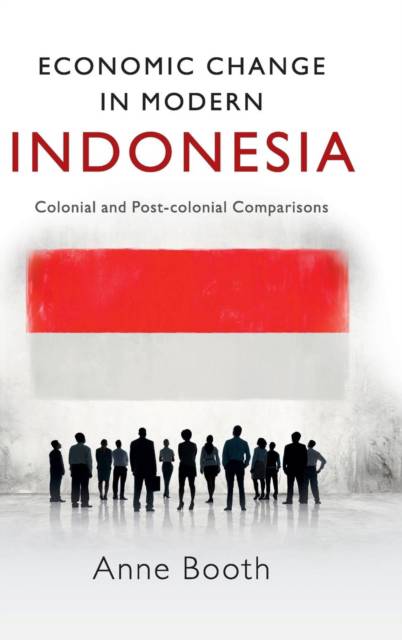
- Afhalen na 1 uur in een winkel met voorraad
- Gratis thuislevering in België vanaf € 30
- Ruim aanbod met 7 miljoen producten
- Afhalen na 1 uur in een winkel met voorraad
- Gratis thuislevering in België vanaf € 30
- Ruim aanbod met 7 miljoen producten
Zoeken
Economic Change in Modern Indonesia
Colonial and Post-colonial Comparisons
Anne Booth
Hardcover | Engels
€ 145,95
+ 291 punten
Omschrijving
Indonesia is often viewed as a country with substantial natural resources which has achieved solid economic growth since the 1960s, but which still faces serious economic challenges. In 2010, its per capita GDP was only nineteen per cent of that of the Netherlands, and twenty-two per cent of that of Japan. In recent decades, per capita GDP has fallen behind that of neighbouring countries such as Malaysia and Thailand, and behind China. In this accessible but thorough new study, Anne Booth explains the long-term factors which have influenced Indonesian economic performance, taking into account the Dutch colonial legacy and the reaction to it after the transfer of power in 1949. The first part of the book offers a chronological study of economic development from the late nineteenth to the early twenty-first century, while the second part explores topics including the persistence of economic nationalism and the ongoing tensions between Indonesia's diverse regions.
Specificaties
Betrokkenen
- Auteur(s):
- Uitgeverij:
Inhoud
- Aantal bladzijden:
- 270
- Taal:
- Engels
Eigenschappen
- Productcode (EAN):
- 9781107109223
- Verschijningsdatum:
- 14/04/2016
- Uitvoering:
- Hardcover
- Formaat:
- Genaaid
- Afmetingen:
- 152 mm x 237 mm
- Gewicht:
- 508 g

Alleen bij Standaard Boekhandel
+ 291 punten op je klantenkaart van Standaard Boekhandel
Beoordelingen
We publiceren alleen reviews die voldoen aan de voorwaarden voor reviews. Bekijk onze voorwaarden voor reviews.











